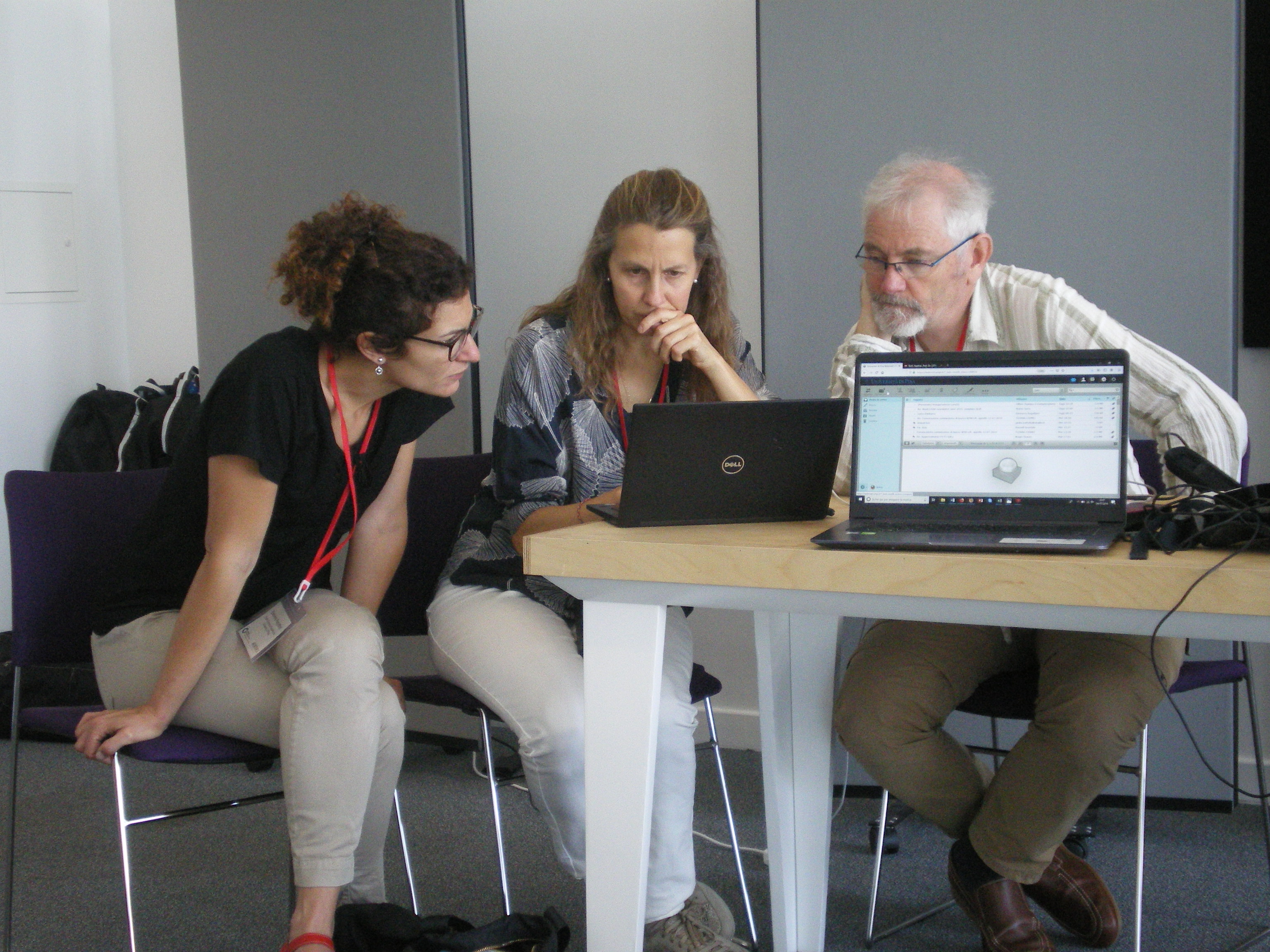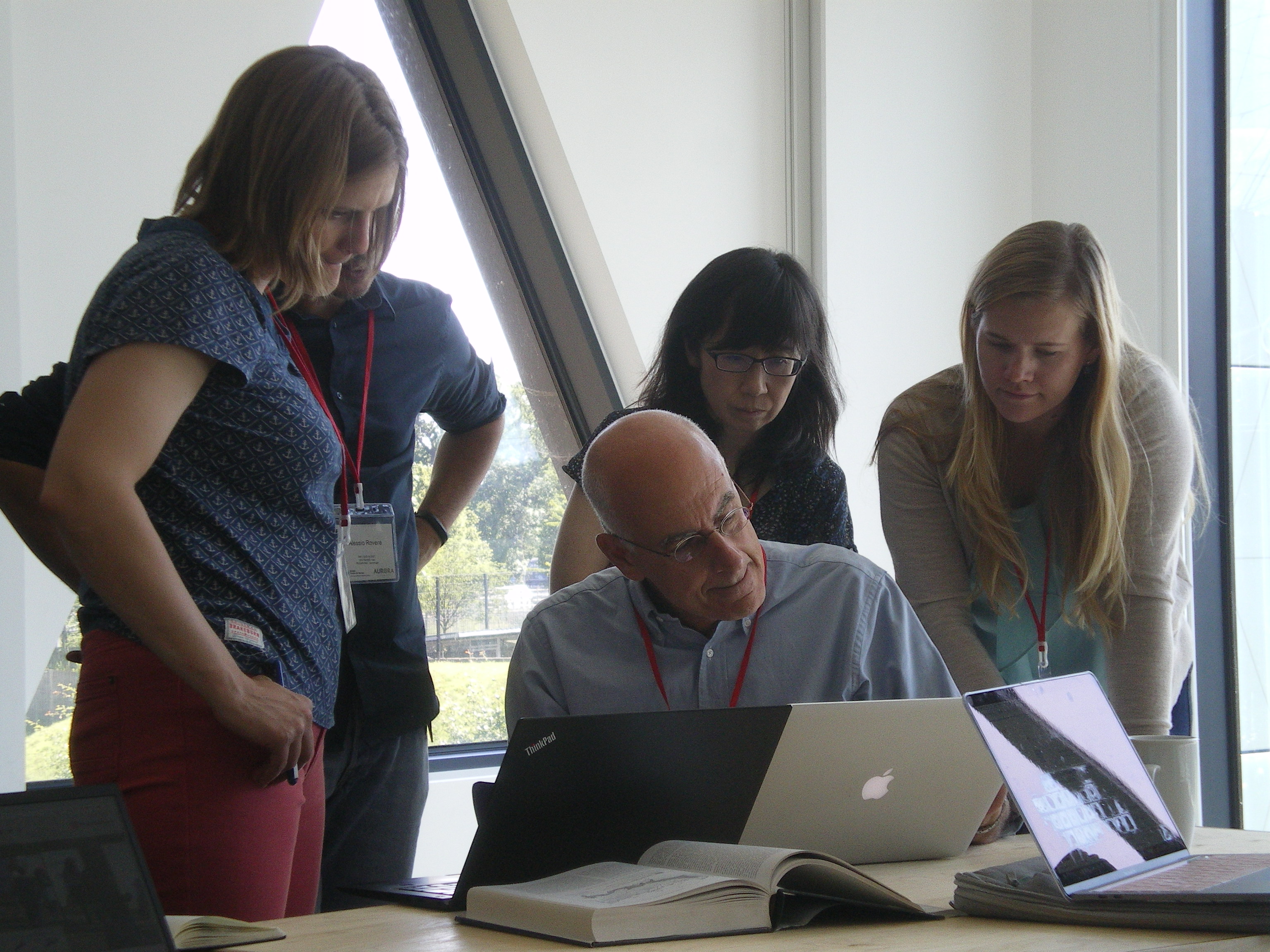
 bas.ac.uk
bas.ac.uk
PAGES' QUIGS working group will hold a workshop, titled "Warm extremes – Marine isotope stage 5e and its relevance to the future" from 1-4 July 2019 in Cambridge, UK.
Venue
The workshop will take place at the British Antarctic Survey.
Logistics
Participant numbers will be limited to 40, including local attendees. In addition to invited participants, there will be open spaces for interested scientists with a track record of working on the last interglacial to apply.
Description
Estimates of the impacts of future warming are based mainly on climate model projections. It is crucial to add evidential support for these estimates, by studying climatic periods when parts of the Earth were warmer than today (Fischer et al., 2018). The last interglacial (LIG, MIS 5e) is crucial in this respect – it contains significant changes in climate compared to today but is sufficiently recent that a good evidence base still exists. It is, taken as a whole, the warmest interglacial of the last 800 ka (Past Interglacials WG, 2016). From the LIG we can learn about the response of the Earth system to a polar warming comparable to that expected in the next century.
In the first phase of QUIGS, we held a workshop bringing together data scientists and modelers to present and discuss new evidence, simulations and syntheses about both MIS 5e and 11. The workshop identified various data and modeling needs that have been addressed in the intervening three years. It initiated work to define the model protocols for a PMIP LIG experiment (at 127 ka, Otto-Bliesner et al., 2017), as well as data benchmarks (Capron et al. 2017).
With the expected completion of the LIG simulations in spring 2019, and the IPCC AR6 submission deadline in December 2019, it is timely to hold another meeting in late summer 2019. This time we will focus on MIS 5e, although work making comparisons with other interglacials will be included. The meeting will review new data that have been created since 2015, and will showcase the results of the new PMIP experiments and some associated ice sheet modeling experiments.
Program outline
By carrying out preparatory work before the meeting we will create the conditions needed to make major outputs from the meeting in time for AR6, including a first data-model comparison for LIG temperature based on the new work.
The meeting will consist of a limited number of formal presentations, and a significant amount of workshop-style discussions, including sessions where a paper outline will be created and authors tasked, and additional topical papers and author teams are identified.
Key speakers/participants
Local organisers will be ice-core scientist Eric Wolff (Cambridge University) and climate modeler Louise Sime (British Antarctic Survey). Key participants come from the data and modeler communities: 15 groups have indicated they will complete the LIG simulation, and all will be invited to the meeting and/or to participate in the paper. We expect to include at least eight early-career scientists, identified through an open call, and through encouraging the key participants to name ECRs in their lab who would benefit.
Registration/Expression of interest
The deadline for expressions of interest to attend this meeting is 29 March.
Expressions of interest should be sent to Eric Wolff: ew428 cam.ac.uk (ew428[at]cam[dot]ac[dot]uk) with a short description of research experience on the topic. A track record on the last interglacial (or exceptionally on other interglacials) is essential.
cam.ac.uk (ew428[at]cam[dot]ac[dot]uk) with a short description of research experience on the topic. A track record on the last interglacial (or exceptionally on other interglacials) is essential.
Please indicate whether you are an early career researcher (within 5 years of PhD). Notifications will be sent in early April.
Financial support
PAGES has provided some funding for the attendance of some early-career scientists and scientists from developing countries. Please state in your expression of interest whether financial support is required, giving reasons.
Background
This is the first workshop of the second phase of QUIGS. In the first workshop of the first phase, we identified research questions and the workshop led to the definition of the 127ka snapshot, as well as the appropriate data benchmarks; the second workshop also led to the related termination II transient PMIP experiments (all QUIGS papers).
At this workshop, in addition to looking at progress on the research questions, we expect to hear the outcome of the PMIP 127 ka model runs, and to make a first comparison with data.
Further information
Contact the meeting organizers Eric Wolff: ew428 cam.ac.uk (ew428[at]cam[dot]ac[dot]uk) and Louise Sime: lsim
cam.ac.uk (ew428[at]cam[dot]ac[dot]uk) and Louise Sime: lsim bas.ac.uk
bas.ac.uk
Post-meeting material
|
|
|
|
|
|
|
|

